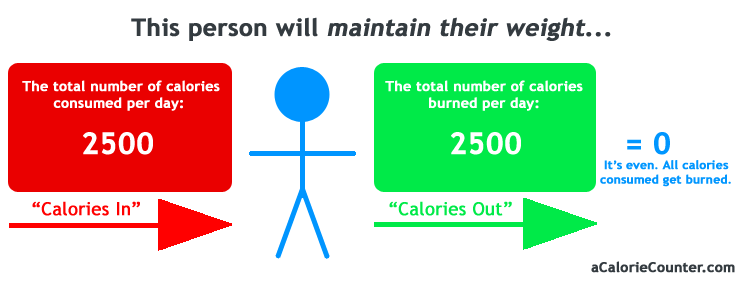Calories. You always hear about calories.
This discourse can be confusing to people who don't fully understand how calories will affect a body, so I'm going to take a moment here to describe this important nutritional element in laymen's terms.
A calorie is essentially a unit of energy. Our bodies take in calories through foods and beverages and we use these calories to keep our organs working and our muscles moving. Calories are essential to living. However, when we take in more calories than necessary, our bodies hold onto these calories and store them as extra mass in case we need them for an energy source in the future.
In the beautiful engine of our bodies, 3,500 calories = one pound of fat. What this means is that if we eat 3,500 extra calories, we will gain one pound. If we exercise off or restrict our diet by 3,500 calories, we will lose one pound. This part is simple mathematics.
The math gets a little more complicated considering each individual's basal metabolic rate (BMR). This metabolic rate refers to how many calories someone expels simply by being alive for 24 hours. You can easily find your DMR by clicking here. These online calculators are not as accurate as tests that a personal trainer can conduct, but I've found them to be pretty accurate. If you can find one that takes your activity level into account, it will probably be more accurate than ones that don't.
Knowing your BMR makes maintaining your weight, or losing weight, easier. My BMR is around 1,600 calories, so I am aware that if I consistently eat 2,000 calories throughout the day, I will gain one pound in about nine days. I can easily reverse this 400-calorie gain by working out for 45 minutes.
Knowledge is power. Arm yourself!

No comments:
Post a Comment